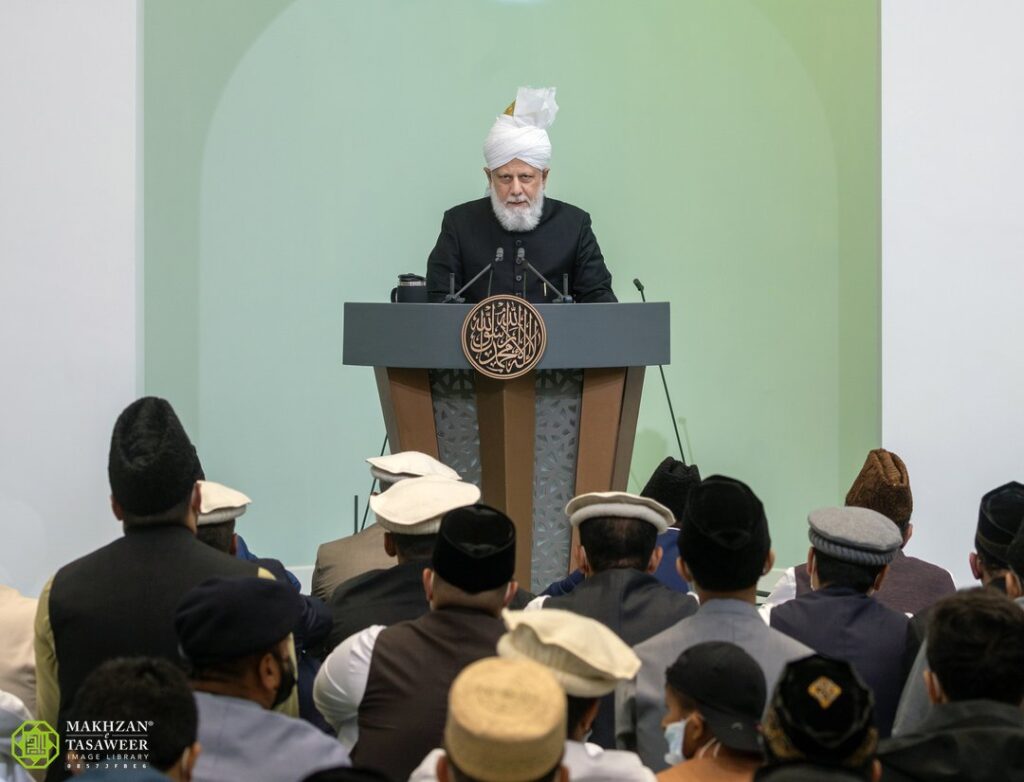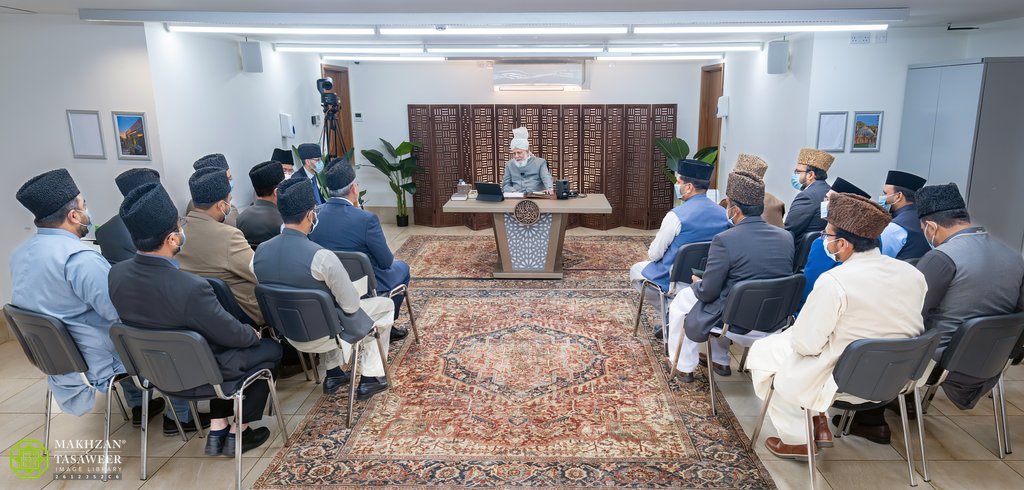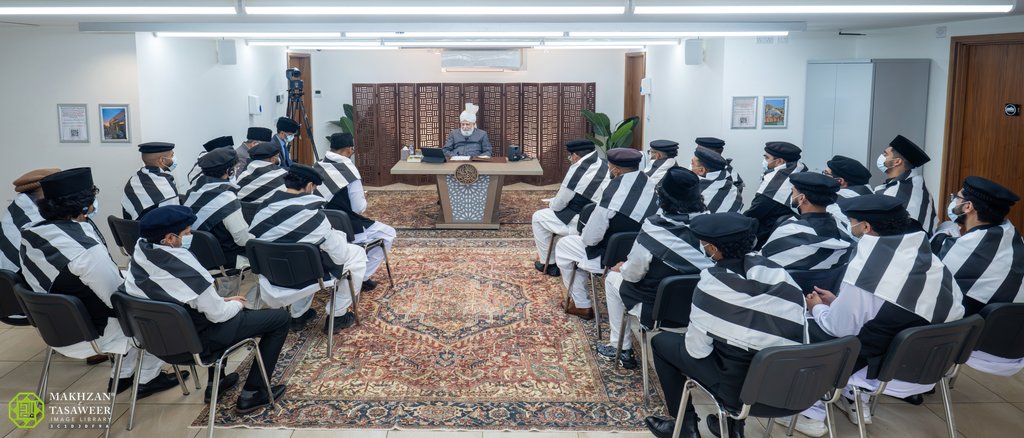
Head Of The Ahmadiyya Muslim Community Highlights The Merciful Character Of The Holy Prophet During Friday Sermon
“This is an unparalleled aspect of the Holy Prophet’s (peace and blessings be upon him) character – that he demonstrated such magnanimity and forbearance.” – Hazrat Mirza Masroor Ahmad
On Friday, 19 September 2025, the World Head of the Ahmadiyya Muslim Community, the Fifth Khalifa (Caliph), His Holiness, Hazrat Mirza Masroor Ahmad, delivered his sermon from Islamabad, UK. Continuing the historical narrative relating to the events around Taif, His Holiness drew lessons for today on moral leadership and the rule of law.
The expedition of Ta’if took place after the Battle of Hunain, when the opposing tribes retreated to the fortified city of Ta’if. The Holy Prophet (peace and blessings of Allah be upon him) led a siege, but his aim was not conquest or plunder. Rather, he sought peace and reconciliation, showing patience and mercy even in a time of war.
In the beginning of his Friday Sermon, His Holiness explained that the Holy Prophet (peace and blessings be upon him) sought reconciliation with the people of Ta’if. He sent companions, including Hazrat Hanzalah (may Allah be pleased with him), to approach them and negotiate peace.
His Holiness explained that the people of Taif had killed an envoy of Muslims who had gone to speak with them. Despite this, the Holy Prophet (peace and blessings of Allah be upon him) did not abandon attempts at reconciliation. For example, the Holy Prophet (peace and blessings of Allah be upon him) accepted their plea that their orchards be spared, even though this meant foregoing a strategic advantage, and thus showed remarkable generosity and forbearance.
With regards to this, His Holiness said:
“This is an unparalleled aspect of the Holy Prophet’s (peace and blessings be upon him) character – that he demonstrated such magnanimity and forbearance. […] Militarily, this was a tactic that could have tilted the balance of the battle in favour of the Muslims had the order for cutting the orchards been carried out, but when they invoked God and appealed to kinship, the Holy Prophet (peace and blessings of Allah be upon him) accepted their request and outwardly bore what appeared to be a very significant military loss.”
His Holiness also highlighted the Holy Prophet’s (peace and blessings of Allah be upon him) humane treatment of vulnerable persons and his principled commitment to justice and the liberation of slaves.
His Holiness stated:
“At that time, the Holy Prophet (peace and blessings be upon him) announced that whoever among the slaves descended from the fortress wall and came to the Muslims would be set free. As a result, twenty-three slaves came down and joined the Muslims. The people of Ta’if were greatly distressed by this. The Holy Prophet (peace and blessings be upon him) set all of them free. Each individual was entrusted to a Muslim, upon whom the responsibility of their care and maintenance was placed. The Holy Prophet (peace and blessings be upon him) also instructed that these freed slaves should be properly taught about the faith.”
When later attempts were made to reclaim these freed individuals, the Holy Prophet (peace and blessings of Allah be upon him) firmly rejected them, making clear that no one who had been granted freedom could ever be forced back into bondage. His example safeguarded the rights of the formerly enslaved.
His Holiness explained that though the Muslims were on the verge of victory, the Holy Prophet (peace and blessings of Allah be upon him) ordered the siege to be brought to an end. His Holiness noted that this decision came through the command of God Almighty, demonstrating that the Holy Prophet’s mission was never for personal or political gain. Rather, every step he took was solely for the sake of his Lord and not for worldly benefit or self-interest. His Holiness explained that when the Holy Prophet (peace and blessings of Allah be upon him) and the Muslims departed from Ta’if without achieving victory, he did not curse his opponents or pray against them. Instead, he prayed for their wellbeing, beseeching Allah the Almighty to guide the people of Thaqeef and enable them to accept Islam.
His Holiness said:
“The Holy Prophet (peace and blessings of Allah be upon him) supplicated, ‘O Allah, grant them guidance and suffice us against their supplies and provisions.’ The Holy Prophet’s (peace and blessings of Allah be upon him) true purpose was that these misguided people should turn back to their Creator. Thus, Allah the Almighty accepted this prayer of the Holy Prophet (peace and blessings of Allah be upon him) in such a way that before even a year had passed, in Ramadan of the ninth year after Hijrah, the people of Ta’if all accepted Islam.”

